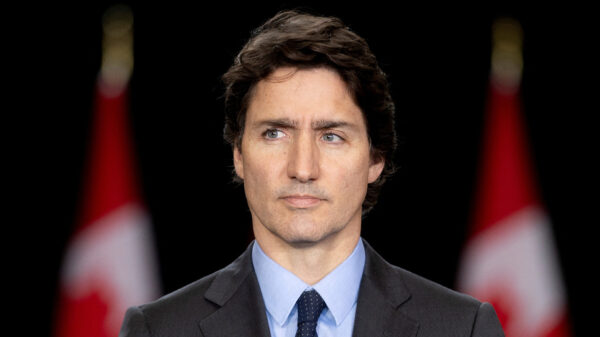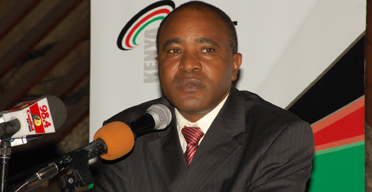NAIROBI, August 4-I walked into the Kenyatta International Conference Centre with lots of anticipation and without even the basic “good morning”, I quickly asked my former colleague and friend whether the new Director General of the Communications Commission of Kenya (CCK) had arrived.
My friend responded in his characteristic efficiency; he sought out Charles Njoroge and alerted him that a reporter from Capital FM was keen to meet him.
I was quite eager to meet this man who, after his appointment three weeks ago, immediately left the country for duty, and so far had not been formally introduced to the media.
The New Director-General, Charles Njoroge, is a humble 50-year-old man with an unassuming look, soft spoken and quite easy to speak to. He is the kind of person who makes you feel so at ease around him that you could actually forget that you were speaking to the individual who will be mapping the path for the country’s very dynamic communication industry in the next 3 years.
And so, when I pressed the button on my recorder, the interview soon developed a natural flow.
Q: Congratulations and how do you feel on your appointment?
A: I am very excited. I do appreciate that this is a challenging position, but I believe, with the team at CCK, we shall do well.
Q: Give us a peek into your education background.
A: I hold a BA – Economics (University of Nairobi), MA in Development Economics (Dalhousie University, Canada), Postgraduate Diploma in Telecommunications Regulation (University of Westminster, UK).
Q: How would you describe your career growth/industry experience?
A: My experience in the ICT industry spans over 25 years. I worked at the defunct Kenya Posts and Telecommunications Corporation (KP&TC) for 16 years as a telecommunications economist. I joined CCK in 1999 at inception as an Assistant Director, and rose through the ranks to full Director in charge of Competition, Tariffs and Market Analysis (CTMA) in August 2005.
Q: Give us a chronology of your selection process.
A: As you are aware, the job was advertised in the press. To ensure there was fairness, the recruitment process was outsourced to a reputable consultant. I was interviewed for the job by the consultants and later by the CCK Board of Directors alongside other applicants. The CCK Board forwarded the names of the three best candidates to the Minister for Information and Communications. The Minister made the appointment on 21st July 2008.
Q: Why do you think you stood out as the preferred candidate?
A: Well, it is not easy to tell because as you very well appreciate I was not a member of the interviewing panel. However, I believe my qualifications and extensive experience in the ICT sector must have stood me in very good stead.
Q: What was your mandate as the Director in charge of Competition Tariffs and Market Analysis (CTMA) at the Commission?
A: Competition, Tariffs and Market Analysis (CTMA) is the department that is in charge of economic regulation of the ICT sector. This entails policy formulation; competition and market analysis; price regulation which includes tariffs and interconnection issues; universal access and funding and statistics. Other responsibilities include implementation and coordination of the Commission’s Performance Contract in addition to chairing CCK’s Tender Committee.
Q: How long did you hold this (CTMA) position and what were your achievements and challenges in this position?
A: I was the Deputy Head of this department up to 2005, when I was elevated to head the division. As the Director – CTMA, I coordinated a number of key assignments/studies at CCK including Universal Access Study, Telecommunications Network Cost Study, the Internet Survey, Geographical Information Service, the Commission’s Annual Reports, and the Postal Sector Market Study currently underway.
Q: What are your immediate plans for CCK?
A: There are a number of projects in the pipeline. The most immediate is the successful implementation of the unified licensing framework. The Framework has been gazetted and from our consultations the industry is eager to migrate to the new regime. We are awaiting the alignment of the ICT Sector Policy Guidelines to the framework before we embark on the implementation.
In addition, with the ICT market fully liberalized, the next phase of regulation for CCK will be consumer protection and education to empower consumers to make informed decisions. In this regard, the Commission will soon roll out a consumer education campaign to realize this objective.
Q: CCK is in the process of adopting a technology neutral unified licensing regime, how has the ICT industry reacted to this?
A: As I indicated earlier, the ICT industry is very enthusiastic about the migration. The enthusiasm stems from the fact that we have involved the industry all the way through a series of public consultations. Besides, the new framework and market structure provide more opportunities for licensees to expand the scope of their business.
Q: While leaving office, the Previous CCK boss (John Waweru) challenged players in the industry to develop content that will be transmitted through the fibre optic cable which should be in place by 2009.What’s your view on the same?
A: I totally concur with Eng. Waweru. The cable will avail the country with bigger bandwidth at substantially lower rates. It is content that will ensure that the additional bandwidth is put into use.
Q: Players in the industry have raised concern about high interconnection charges. Are you going to make rate reduction a priority in your plans?
A: Interconnect rates are agreed on commercially between operators. What CCK does is to develop the requisite interconnection principles to guide operators as they negotiate the rates. CCK also periodically carries out studies to determine whether the rates charged are cost based. The said studies usually provide the price caps for the various interconnection charges, which CCK uses to obligate the licensed operators to conform with.
Q: You’re coming in at a time when 2 mobile phone players will be joining the market and thus increased competition and price wars, how do you intend to handle the situation as a regulator?
A: We are looking forward to the entry of additional two mobile telecommunications operators because we know that this will benefit consumers. As a regulatory and in essence a competition authority, we shall enforce the relevant law to ensure that operators do not engage in anti-competitive business behaviour and unfair trading practices. This will ensure that there is an effective competitive environment in the market.
Q: What is your take on the draft ICT bill and its impact on the industry?
A: The Bill will transform CCK to a converged regulator with responsibilities across the entire ICT sector, including broadcasting. What this effectively means is that CCK will become a one-stop shop for investors who want to participate in the sector. Currently, CCK’s role in broadcasting is limited to assignment of frequencies and enforcement to ensure that the frequencies are utilized in accordance to the licence parameters.
The licensing of broadcasters is currently done at the Ministry of Information and Communications. With enactment of the new law, CCK will handle the entire licensing process for broadcasters. In addition, the new law will expand CCK’s mandate into content regulation.
Q: Some people say the draft bill gives too much power to you as the regulators do you feel that’s true? They also say it has focused more on the traditional forms of communication as opposed to ICT what’s your view?
A: I do not think so. In fact the way Kenya is going with the Bill is in conformity with international best practice and a logical response to technological developments in the ICT sector, which have led to the convergence in broadcasting, telecommunication and computing technologies. With technological convergence now a reality, it makes a lot of sense for the country to adopt converged regulation, which is the intent of the Bill.
Q: The country intends to migrate from analogue to digital television broadcasting by the year 2015. Is this feasible?
A: It is. The migration deadline was agreed multilaterally at the ITU during the Regional Radio communications Conference in 2006. Kenya is, therefore, bound by the relevant resolution made at this conference. The preparatory process for the migration has already begun, and as a country we are on course to ensure that the migration is done earlier by 2012. The migration will bring about tremendous benefits to the country. These include freeing some frequencies for assignment to TV broadcasters. This is because digital technology is very spectrum-efficient.
Q: Describe your management style?
A: I subscribe to an open door policy. My office will be open to the industry and to staff. I shall consult internally with my staff and externally with industry players and other stakeholders. I will be firm and fair. I shall do my best to ensure that the Commission works as a team and a team leader in the market.
Q: What contribution would you like to be remembered for during your tenure as Director – General?
A: Basically three things: – Consumer protection; implementation of unified licensing framework; operationalisation of the converged regulation (once the relevant laws are enacted); access to affordable ICT services in the country.


































